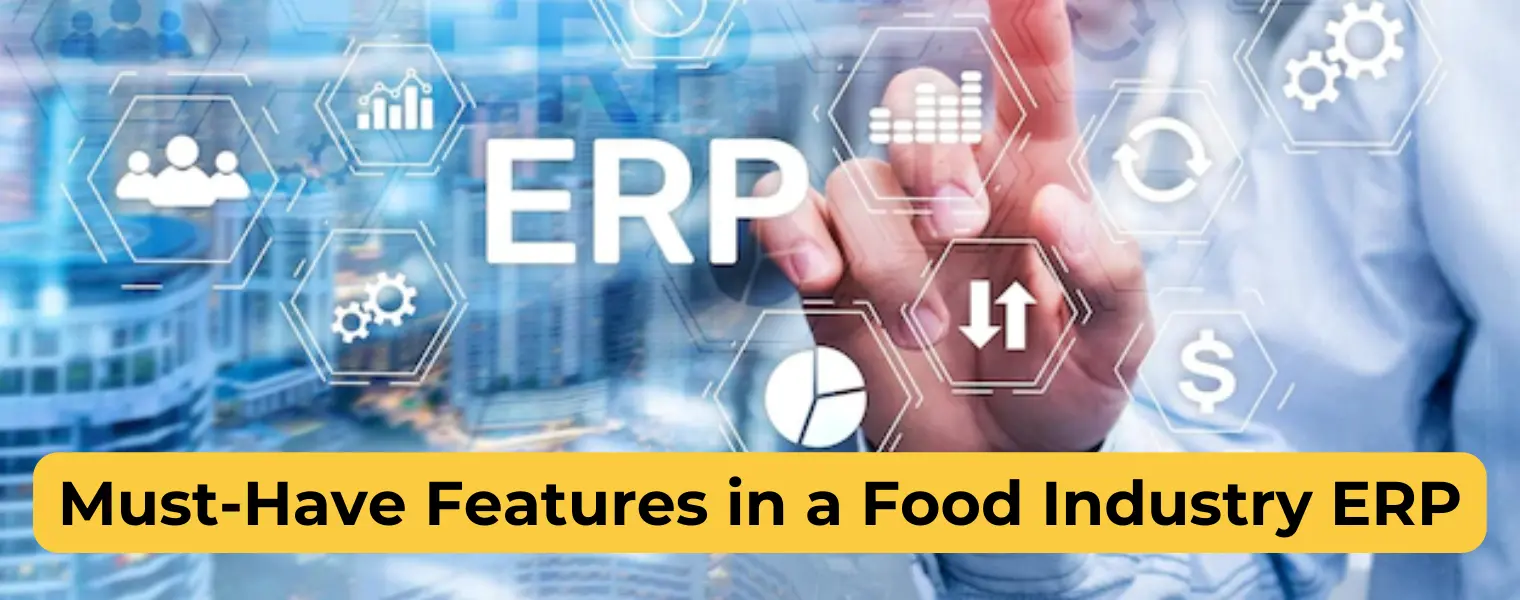
Today's food and beverage businesses require advanced technological tools. Enterprise resource planning (ERP) systems have become the gold standard in recent years for unlocking the agility and actionable insights required to compete. Of course, it's not as simple as picking up any old ERP platform and expecting it to work. As a food and beverage industry professional, you should be on the lookout for a true food industry ERP—one that comes with out-of-the-box functionalities tailored to your very specific processes—in order to avoid costly customizations and time-consuming workarounds that could delay your return on investment (ROI).
Let's look at some of the most important features of food and beverage ERP software
It may seem obvious, but knowing what you have on hand and knowing that your figures are always up to date is a huge advantage in the food and beverage industry. After all, running out of a critical ingredient at the wrong time can be a nightmare, seriously hampering your ability to fulfil plans and meet delivery deadlines. ERP systems for food and beverage manufacturers use integration and automation to ensure that stock levels are accurately reflected in the interface. They also make it much easier to find what you're looking for because they capture more information than just quantity—with an advanced solution like DoFort’s Food & Beverage ERP, you can know where a specific lot is, when it was received, when it expires, and much more.
Another useful feature of inventory management software is the automatic reordering of ingredients when stock falls below a predefined threshold. As a result, your company will never be without the materials it needs to run its lines and fulfil orders.
Inventory control and shelf life and expiration management go hand in hand, as it is your procedures for picking quantities of stock for use in production that are most important in this regard. Your ERP should assist you in implementing a first-expiry, first-out (FEFO) method, which has been shown to reduce waste and help you get the most out of what you buy. Also, because spoiled ingredients pose a food safety risk, your system should issue alerts when specific lots reach the end of their window of viability, allowing them to be used quickly if time permits, or simply removed from inventory so they don't end up in your finished goods. Customers should have a better experience as a result of being able to enjoy completely fresh and fit-to-eat food.
Because the recipes that go into your products are so important to their success, you'll need sophisticated recipe management tools to ensure the accuracy of ingredient levels, timing, mixing procedures, cooking processes, and more. Formulas can become quite complex in certain sectors of the food and beverage industry, but a true food industry ERP will be able to handle the nuances and granular details of even your most challenging configurations. When it comes to adjusting and tracking amounts, automatic unit conversion is a must-have feature in a food manufacturing ERP solution. Look for the ability to integrate with smart sensors as well, as you will need to closely monitor characteristics such as temperature, consistency, and fill level to ensure your products meet your own standards for excellence.
Quality control is closely related to recipe management, and we all know how important it is for customer satisfaction and brand reputation. Any food industry ERP worth considering should include features that aid in the quality assurance process, ensuring that everything that rolls off your production lines delights customers. A solid ERP solution can help you monitor for and catch deviations from internal standards by allowing you to set your own quality triggers, ensuring that no deficient items slip through the cracks and make their way to end consumers. You can also create an unlimited number of inspection statuses to keep all members of your staff informed of what has already been confirmed and what still needs to be checked, ensuring consistent product quality and customer satisfaction.
Food safety is such an important issue that regulations and standards for food and beverage manufacturers are becoming increasingly stringent. In the United States, the Proposed Rule for Food Traceability will soon supplement the existing provisions of the Food Safety Modernization Act in 2021, and the European Union recently established a new definition of "food safety culture" that all food and beverage businesses must adhere to. As a result, it's critical that you understand what regulations apply to the industries in which your company operates, as well as how to best ensure that you follow all necessary procedures. The best food industry ERP solutions, such as DoFort Food & Beverage ERP, have built-in measures to ensure compliance and automate your checks and audits, making this much easier.
Whether it's adhering to HACCP, SQF, BRCGS, ISO, FSSC, or cGMP standards, or simply meeting the requirements of the government or regulatory body to which your organisation reports, an industry-specific ERP should have the tools to effectively manage and meet all compliance requirements. This gives you complete confidence and peace of mind without the need for time-consuming workarounds, manual processes, or costly customizations.
DoFort provides the Best Food and Beverage ERP with Additional features like business intelligence (BI), robust data analytics, cloud hosting options, and product lifecycle management integration. Contact us to know more about food and beverage ERP and how it can benefit your business.
Welcome to DoFort !